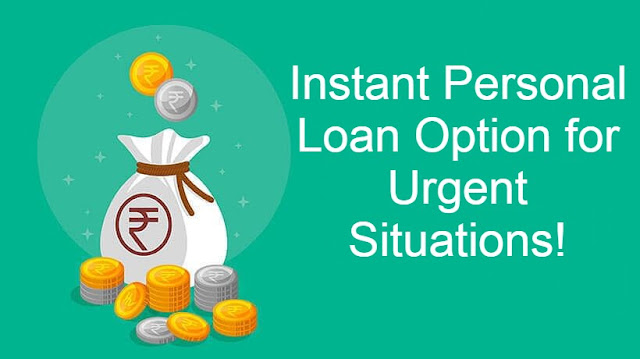This post explores the top five benefits of selecting a school with federal financial aid options, providing valuable insights for students and parents alike.
Federal financial aid acts as a lifeline for many students striving to achieve higher education. It encompasses grants, loans, and work-study programs designed to make college more accessible.
Federal financial aid acts as a lifeline for many students striving to achieve higher education. It encompasses grants, loans, and work-study programs designed to make college more accessible.
Unlike private loans, federal aid typically offers lower interest rates and flexible repayment options, making it a more favorable choice for students.
Choosing a school with federal financial aid options levels the playing field. Students from various economic backgrounds can pursue their academic dreams without the burden of insurmountable debt. This accessibility fosters a more diverse and inclusive educational environment, enriching the learning experience for all.
Financial stress is a significant concern for many students and their families. Federal financial aid can alleviate this burden by covering tuition, room and board, and other essential expenses.
Federal financial aid offers numerous repayment plans tailored to individual financial situations. These plans include income-driven repayment options, which adjust monthly payments based on your income and family size.
Federal student loans often come with lower interest rates compared to private loans. This lower rate translates to less money spent on interest over the life of the loan, ultimately saving you thousands of dollars. Additionally, some federal loans offer interest subsidies while you are in school, further reducing your financial burden.
Loan forgiveness programs are a significant advantage of federal financial aid. These programs forgive part or all of your federal student loans in exchange for working in certain public service jobs or specific fields.
One of the most appealing aspects of federal financial aid is the availability of grants and scholarships. Unlike loans, these funds do not require repayment, providing free money for your education.
Work-study programs provide students with part-time employment opportunities to earn money while attending school. These jobs are often related to the student's field of study, offering valuable work experience and networking opportunities.
When financial worries are minimized, students can devote more time and energy to their studies. This increased focus often leads to better academic performance and higher retention rates. Schools with federal financial aid options understand the importance of supporting their students financially to foster academic success.
Schools offering federal financial aid typically provide additional support services and resources to help students manage their finances. These services may include financial literacy workshops, one-on-one counseling, and assistance with budgeting and financial planning. Such resources empower students to make informed financial decisions throughout their academic journey and beyond.
Federal financial aid can influence career choices by reducing the pressure to choose high-paying jobs solely to repay loans. Graduates can pursue careers they are passionate about, including those in public service or non-profit sectors, without the overwhelming burden of student debt. This freedom leads to more fulfilling and meaningful professional lives.
By opting for a school with federal financial aid options, students set themselves up for a stronger financial future. Lower debt levels, manageable repayment plans, and access to loan forgiveness programs contribute to long-term financial stability.
Federal financial aid promotes lifelong learning by making higher education more attainable. It encourages students to pursue advanced degrees, certifications, and professional development opportunities. This continuous learning not only enhances personal growth but also boosts career prospects and earning potential.
Choosing a school with federal financial aid options offers numerous benefits that extend beyond initial financial support. From accessibility and reduced financial stress to enhanced academic performance and career flexibility, federal financial aid is a crucial factor in achieving educational and financial success.
Choosing a school with federal financial aid options levels the playing field. Students from various economic backgrounds can pursue their academic dreams without the burden of insurmountable debt. This accessibility fosters a more diverse and inclusive educational environment, enriching the learning experience for all.
Reduced Financial Stress
Financial stress is a significant concern for many students and their families. Federal financial aid can alleviate this burden by covering tuition, room and board, and other essential expenses.
This support allows students to focus on their studies and personal growth instead of worrying about finances.
Flexible Repayment Plans
Federal financial aid offers numerous repayment plans tailored to individual financial situations. These plans include income-driven repayment options, which adjust monthly payments based on your income and family size.
Such flexibility ensures that loan repayment is manageable and does not hinder your financial stability post-graduation.
Lower Interest Rates
Federal student loans often come with lower interest rates compared to private loans. This lower rate translates to less money spent on interest over the life of the loan, ultimately saving you thousands of dollars. Additionally, some federal loans offer interest subsidies while you are in school, further reducing your financial burden.
Opportunities for Loan Forgiveness
Loan forgiveness programs are a significant advantage of federal financial aid. These programs forgive part or all of your federal student loans in exchange for working in certain public service jobs or specific fields.
This benefit not only eases the financial strain but also encourages graduates to pursue meaningful and impactful careers.
Grants and Scholarships
One of the most appealing aspects of federal financial aid is the availability of grants and scholarships. Unlike loans, these funds do not require repayment, providing free money for your education.
Grants like the Pell Grant are awarded based on financial need, while scholarships can be merit-based, need-based, or offered for specific talents or interests.
Work-Study Programs
Work-study programs provide students with part-time employment opportunities to earn money while attending school. These jobs are often related to the student's field of study, offering valuable work experience and networking opportunities.
The income earned through work-study can help cover educational and living expenses, reducing the need for additional loans.
Enhanced Academic Performance
When financial worries are minimized, students can devote more time and energy to their studies. This increased focus often leads to better academic performance and higher retention rates. Schools with federal financial aid options understand the importance of supporting their students financially to foster academic success.
Support Services and Resources
Schools offering federal financial aid typically provide additional support services and resources to help students manage their finances. These services may include financial literacy workshops, one-on-one counseling, and assistance with budgeting and financial planning. Such resources empower students to make informed financial decisions throughout their academic journey and beyond.
Positive Impact on Career Choices
Federal financial aid can influence career choices by reducing the pressure to choose high-paying jobs solely to repay loans. Graduates can pursue careers they are passionate about, including those in public service or non-profit sectors, without the overwhelming burden of student debt. This freedom leads to more fulfilling and meaningful professional lives.
Building a Stronger Financial Future
By opting for a school with federal financial aid options, students set themselves up for a stronger financial future. Lower debt levels, manageable repayment plans, and access to loan forgiveness programs contribute to long-term financial stability.
Graduates can focus on building their careers, saving for the future, and achieving their financial goals.
Encouraging Lifelong Learning
Federal financial aid promotes lifelong learning by making higher education more attainable. It encourages students to pursue advanced degrees, certifications, and professional development opportunities. This continuous learning not only enhances personal growth but also boosts career prospects and earning potential.
Final Thoughts
Choosing a school with federal financial aid options offers numerous benefits that extend beyond initial financial support. From accessibility and reduced financial stress to enhanced academic performance and career flexibility, federal financial aid is a crucial factor in achieving educational and financial success.
Consider these advantages when selecting a school to ensure a brighter future for yourself or your loved ones. Explore schools with robust financial aid programs, take the first step towards a rewarding educational experience today, and discover more here.



.jpg)










